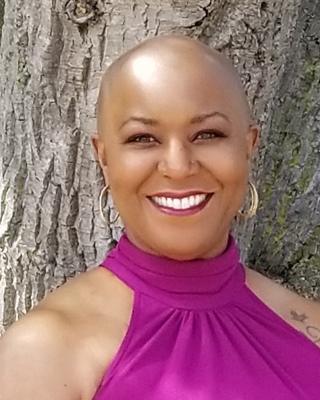
A Complete Guide to Mental Health Professional Education and Credentials
When choosing a therapist in Durham, North Carolina, understanding their educational background and credentials is essential for making an informed decision about your mental health care. Mental health professionals come from various educational pathways, each bringing unique training, perspectives, and specialized skills to their practice.
The therapists featured in our Durham Therapists directory represent a diverse range of educational backgrounds and specializations, from master’s-level counselors to doctoral-level psychologists and medical doctors specializing in psychiatry. Understanding these different educational paths can help you choose a mental health professional whose training aligns with your specific needs and preferences.
Overview of Mental Health Professional Education
Educational Pathways to Mental Health Practice
Mental health professionals in Durham typically follow one of several educational pathways to become licensed therapists:
- Master’s Level Programs: 2-3 years of graduate study leading to clinical practice
- Doctoral Programs: 4-7 years of graduate study with extensive research and clinical training
- Medical School Plus Residency: 4 years medical school plus 4-year psychiatry residency
- Specialized Certificate Programs: Additional training in specific therapeutic approaches
Core Educational Components
Regardless of the specific degree path, all mental health professionals in Durham complete extensive education in:
- Human development and psychology
- Psychopathology and mental health disorders
- Therapeutic techniques and interventions
- Ethics and professional standards
- Research methods and evidence-based practice
- Cultural competency and diversity
- Assessment and diagnosis
- Group and family therapy approaches
Master’s Level Mental Health Professionals
Master’s in Clinical Mental Health Counseling (CMHC)
This is one of the most common educational paths for therapists in Durham. The program typically includes:
- Duration: 2-3 years (48-60 credit hours)
- Core Coursework: Counseling theories, psychopathology, assessment, group therapy, family systems
- Clinical Training: 100 hours practicum plus 600-1,000 hours internship
- Licensing Path: Licensed Clinical Mental Health Counselor (LCMHC) in North Carolina
- Specializations: Trauma therapy, addiction counseling, child and adolescent therapy
Many Durham therapists with CMHC degrees provide individual, couples, and family therapy for a wide range of mental health concerns including depression, anxiety, trauma, and relationship issues.
Master’s in Social Work (MSW) with Clinical Concentration
Social work education emphasizes a person-in-environment perspective and social justice principles:
- Duration: 2 years (60 credit hours) or accelerated 1-year programs for BSW holders
- Core Areas: Human behavior, social policy, research, clinical practice, field education
- Field Education: 900-1,200 hours of supervised field experience
- Licensing Path: Licensed Clinical Social Worker (LCSW) in North Carolina
- Unique Focus: Systems perspective, advocacy, social determinants of mental health
Durham LCSWs often work with diverse populations and complex cases, bringing expertise in both individual therapy and systemic interventions.
Master’s in Marriage and Family Therapy (MFT)
Specialized education focusing specifically on relationship and family dynamics:
- Duration: 2-3 years with intensive family therapy focus
- Specialized Training: Family systems theory, couples therapy, family assessment
- Clinical Hours: Extensive supervised practice with couples and families
- Licensing Path: Licensed Marriage and Family Therapist (LMFT) in North Carolina
- Expertise: Relationship counseling, family conflict, communication skills
Durham MFTs specialize exclusively in relationship and family therapy, bringing deep expertise to couples and family work.
Master’s in Professional Counseling (MPC)
A broad-based counseling degree that prepares graduates for general mental health practice:
- Curriculum: Counseling theory, assessment, group counseling, career development
- Flexibility: Often allows for concentration in specific areas
- Licensing Path: Licensed Professional Counselor (LPC) in North Carolina
- Practice Areas: Individual counseling, career counseling, substance abuse treatment
Doctoral Level Mental Health Professionals
Doctor of Psychology (PsyD) in Clinical Psychology
A practice-focused doctoral degree emphasizing clinical skills:
- Duration: 4-6 years post-bachelor’s degree
- Focus: Clinical practice, assessment, intervention
- Clinical Training: Extensive practicum and internship requirements (1,500+ hours)
- Dissertation: Applied research project or clinical study
- Licensing: Licensed Psychologist in North Carolina
- Specializations: Neuropsychology, forensic psychology, health psychology
Durham PsyD psychologists often specialize in psychological testing, complex mental health conditions, and evidence-based therapies.
Doctor of Philosophy (PhD) in Clinical Psychology
A research-focused doctoral degree combining clinical practice with scientific training:
- Duration: 5-7 years with extensive research requirements
- Emphasis: Research methodology, statistical analysis, dissertation research
- Clinical Training: Comprehensive practicum and internship (1,500+ hours)
- Research: Original dissertation contributing to psychological knowledge
- Career Paths: Clinical practice, research, academia, consultation
PhD psychologists in Durham often bring cutting-edge research knowledge to their clinical practice and may specialize in specific disorders or populations.
Doctor of Philosophy (PhD) in Counseling Psychology
Focuses on normal human development and adjustment rather than severe mental illness:
- Approach: Strength-based, developmental perspective
- Training: Multicultural competence, prevention, wellness
- Practice Areas: Career counseling, relationship therapy, life transitions
- Research Focus: Counseling process, multicultural issues, positive psychology
Medical Doctors Specializing in Mental Health
Psychiatrists (MD or DO)
Medical doctors who specialize in mental health and can prescribe medication:
- Medical School: 4 years earning MD (Doctor of Medicine) or DO (Doctor of Osteopathic Medicine)
- Residency: 4-year psychiatry residency with extensive clinical training
- Board Certification: American Board of Psychiatry and Neurology certification
- Subspecialties: Child psychiatry, geriatric psychiatry, addiction psychiatry
- Unique Skills: Medication management, medical model understanding, complex cases
Durham psychiatrists often work collaboratively with therapists, providing medication management while therapists provide psychotherapy.
Fellowship Training
Many psychiatrists complete additional fellowship training in subspecialties:
- Child and Adolescent Psychiatry: Additional year focusing on youth mental health
- Geriatric Psychiatry: Specialization in mental health of older adults
- Addiction Psychiatry: Focus on substance use disorders and dual diagnosis
- Forensic Psychiatry: Intersection of mental health and legal systems
Educational Requirements by License Type in North Carolina
Licensed Clinical Mental Health Counselor (LCMHC)
North Carolina requirements for LCMHC licensure:
- Education: Master’s degree in counseling or related field (48+ credit hours)
- Supervised Experience: 4,000 hours over minimum 2 years
- Supervision: 200 hours of clinical supervision
- Examination: National Counselor Examination (NCE)
- Continuing Education: 40 hours every 2 years
Licensed Clinical Social Worker (LCSW)
Requirements for LCSW licensure in North Carolina:
- Education: Master’s degree in social work from CSWE-accredited program
- Clinical Experience: 3,000 hours of post-graduate supervised experience
- Supervision: 200 hours of clinical supervision
- Examination: Clinical level ASWB examination
- Renewal: Annual renewal with continuing education requirements
Licensed Marriage and Family Therapist (LMFT)
North Carolina LMFT requirements:
- Education: Master’s degree with specific MFT coursework
- Experience: 4,000 hours including 1,000 hours direct client contact
- Couples/Family Focus: Majority of hours must be couples/family therapy
- Supervision: 200 hours of clinical supervision
- Examination: Marriage and Family Therapy National Examination
Licensed Psychologist
Requirements for psychology licensure in North Carolina:
- Education: Doctoral degree in psychology from APA-accredited program
- Internship: APA-accredited predoctoral internship (1,500+ hours)
- Postdoctoral Experience: 1,500-4,000 hours depending on degree type
- Examination: Examination for Professional Practice in Psychology (EPPP)
- Specializations: Additional requirements for specialty practice areas
Specialized Training and Certifications
Trauma-Focused Training
Many Durham therapists pursue additional training in trauma treatment:
- EMDR Certification: Eye Movement Desensitization and Reprocessing
- Trauma-Focused CBT: Specialized cognitive behavioral therapy for trauma
- Somatic Experiencing: Body-based trauma therapy approach
- Internal Family Systems (IFS): Parts-based therapy for trauma
Couples and Family Therapy Certifications
- Gottman Method: Research-based couples therapy approach
- Emotionally Focused Therapy (EFT): Attachment-based couples therapy
- Imago Relationship Therapy: Conscious relationship approach
- Structural Family Therapy: Systems-based family intervention
Specialized Population Training
- Child and Adolescent Therapy: Play therapy, developmental approaches
- Geriatric Mental Health: Specialized training for older adults
- LGBTQ+ Affirmative Therapy: Cultural competency training
- Addiction Counseling: Substance abuse treatment specialization
How Education Impacts Therapeutic Practice
Assessment and Diagnosis Capabilities
Educational background influences assessment abilities:
- Doctoral Psychologists: Comprehensive psychological testing and neuropsychological assessment
- Master’s Level Therapists: Clinical interviews, symptom rating scales, diagnostic assessment
- Psychiatrists: Medical evaluation, differential diagnosis, medication assessment
Treatment Approach Variations
Different educational backgrounds often emphasize different therapeutic approaches:
- Psychology Training: Evidence-based therapies, research-supported interventions
- Social Work Training: Systems perspective, advocacy, social determinants focus
- Counseling Training: Relationship-focused, humanistic approaches
- Medical Training: Medical model, biological factors, medication integration
Scope of Practice Differences
Educational credentials determine scope of practice:
- Medication Prescribing: Only psychiatrists (and some psychologists in certain states)
- Psychological Testing: Primarily doctoral-level psychologists
- Therapy Services: All licensed mental health professionals
- Forensic Evaluation: Typically requires specialized training and credentials
Choosing the Right Educational Background for Your Needs
When to Consider a Master’s Level Therapist
Master’s level therapists in Durham are excellent choices for:
- Individual therapy for depression, anxiety, and relationship issues
- Couples and family therapy
- Trauma therapy and PTSD treatment
- Addiction counseling and recovery support
- Life transitions and adjustment issues
When to Consider a Doctoral Level Psychologist
Doctoral psychologists may be preferred for:
- Complex mental health conditions requiring comprehensive assessment
- Psychological testing for learning disabilities, ADHD, or cognitive issues
- Research-based treatment approaches
- Neuropsychological evaluation after brain injury
- Forensic evaluation for legal proceedings
When to Consider a Psychiatrist
Psychiatrists are essential for:
- Medication evaluation and management
- Complex cases with multiple diagnoses
- Severe mental illness requiring medical intervention
- Treatment-resistant conditions
- Coordination of medical and psychological care
Quality Indicators Beyond Degrees
Clinical Experience
Years of practice and specialized experience often matter as much as educational credentials:
- Number of years in practice
- Experience with your specific concerns
- Variety of populations served
- Specialized training beyond degree requirements
- Ongoing professional development
Professional Credentials and Memberships
- Board certifications in specialty areas
- Professional association memberships
- Continuing education completion
- Peer recognition and awards
- Teaching or supervision experience
Therapeutic Approach and Fit
- Compatibility with your communication style
- Cultural competency and sensitivity
- Evidence-based practice integration
- Collaborative approach to treatment
- Flexibility in therapeutic methods
Understanding Degree Information in Our Durham Directory
How We Present Educational Information
In our Durham Therapists directory, each therapist’s profile includes comprehensive educational information:
- Degree type and field of study
- University or institution attended
- Graduation year and years in practice
- License type and number
- Additional certifications and specialized training
- Professional memberships and affiliations
Using Educational Information to Choose
When browsing our directory, consider how educational background aligns with your needs:
- Match degree specialization to your concerns
- Consider the level of education appropriate for your situation
- Look for specialized training relevant to your needs
- Review years of experience and practice focus
- Check for ongoing professional development
Reading Reviews About Educational Background
Our directory features authentic reviews from Durham residents that often mention:
- How the therapist’s training influenced their effectiveness
- Appreciation for specialized knowledge and skills
- Confidence in the therapist’s educational credentials
- Examples of how training benefited the therapeutic process
The Value of Diverse Educational Backgrounds
Interdisciplinary Collaboration
Durham’s mental health community benefits from therapists with diverse educational backgrounds who can:
- Provide different perspectives on mental health challenges
- Offer varied therapeutic approaches and techniques
- Collaborate effectively in treatment teams
- Refer appropriately to other specialists
- Address complex, multifaceted mental health needs
Meeting Diverse Community Needs
Different educational backgrounds serve Durham’s diverse population:
- Social workers bring systems perspective for complex family situations
- Psychologists provide research-based treatments for specific disorders
- Counselors offer humanistic approaches for personal growth
- Marriage and family therapists specialize in relationship dynamics
- Psychiatrists address biological aspects of mental health
Continuing Education and Professional Development
Ongoing Learning Requirements
All licensed therapists in Durham must complete continuing education:
- Required hours vary by license type
- Must include ethics training
- Often includes specialty area requirements
- May require supervision or consultation hours
- Ensures current knowledge of best practices
Professional Development Opportunities
Durham therapists pursue ongoing training through:
- Professional conferences and workshops
- Online training programs and webinars
- Supervision and consultation groups
- Advanced certification programs
- Research participation and publication
Questions to Ask About Therapist Education
Initial Consultation Questions
When meeting with potential therapists, consider asking:
- What is your educational background and training?
- How does your training prepare you to help with my specific concerns?
- What additional certifications or specializations do you have?
- How do you stay current with developments in the field?
- What therapeutic approaches did you learn in your training?
- Do you participate in ongoing supervision or consultation?
Understanding Training Relevance
- How does your education inform your therapeutic approach?
- What specific training do you have for my type of concerns?
- Have you received training in cultural competency?
- What evidence-based treatments did you learn?
- How do you integrate different aspects of your training?
Finding Durham Therapists with the Right Educational Background
Using Our Directory Search Features
Our Durham Therapists directory allows you to search by educational background and credentials:
- Filter by degree type (Master’s, Doctoral, Medical)
- Search by license type (LCMHC, LCSW, LMFT, Psychologist)
- Look for specific specializations and certifications
- Review years of experience and practice focus
- Check university affiliations and training programs
Exploring Our Top 10 Best Therapists in Durham, NC
Our Best Therapists in Durham list includes mental health professionals with diverse educational backgrounds who have demonstrated excellence in their practice. These therapists represent various degree levels and specializations, showcasing the value of different educational paths in mental health care.
Reading Educational Reviews
Durham residents often comment in reviews about how their therapist’s educational background influenced their care. Look for reviews that mention:
- Confidence in the therapist’s training and expertise
- Appreciation for specialized knowledge
- Examples of how education informed treatment
- Recommendations based on educational qualifications
For Mental Health Professionals
Join Our Durham Therapists Directory
Are you a licensed mental health professional with the education and training to serve Durham residents? We welcome qualified therapists from all educational backgrounds to join our comprehensive directory.
Benefits of joining our directory include:
- Detailed educational profile showcasing your training and credentials
- Opportunity to highlight specialized certifications and expertise
- Connection with clients seeking your specific educational background
- Platform to demonstrate your ongoing professional development
- Inclusion in our diverse community of mental health professionals
- Potential feature on our Top 10 Best Therapists list
Whether you hold a master’s degree in counseling, a doctoral degree in psychology, or medical training in psychiatry, join our directory today and help Durham residents understand the value of your educational background and specialized training.
Supporting Durham’s Mental Health Community
Sharing Your Experience with Therapist Education
After working with a Durham therapist, consider leaving a review that includes information about how their educational background influenced your care. Your feedback helps other residents understand:
- How different educational backgrounds serve different needs
- The value of specialized training and certifications
- Examples of educational expertise in action
- Confidence levels associated with different credentials
- Recommendations for others with similar concerns
Review Our Directory Service
We also welcome feedback about how our educational information helped you choose the right therapist. Let us know what aspects of educational background were most important to you and how our directory supported your decision-making process.
The Future of Mental Health Education
Evolving Training Standards
Mental health education continues to evolve with:
- Increased emphasis on cultural competency and diversity
- Integration of technology and telehealth training
- Focus on evidence-based practice and outcome measurement
- Trauma-informed care as standard training
- Interdisciplinary collaboration skills
Emerging Specializations
New areas of specialization in mental health education include:
- Digital mental health and app-based interventions
- Climate change and environmental psychology
- Integrative and complementary approaches
- Prevention and wellness focus
- Global mental health perspectives
Conclusion
Understanding what degrees therapists need provides valuable insight into the extensive education and training required to become a mental health professional. From master’s level counseling degrees to doctoral programs in psychology and medical training in psychiatry, each educational pathway brings unique strengths and perspectives to mental health care.
The therapists featured in our Durham Therapists directory represent the full spectrum of mental health education, from Licensed Clinical Mental Health Counselors and Licensed Clinical Social Workers to Licensed Psychologists and Board Certified Psychiatrists. Each brings years of rigorous academic training, supervised clinical experience, and ongoing professional development to their practice.
When choosing a therapist in Durham, consider how their educational background aligns with your specific needs and preferences. Our directory makes it easy to understand each therapist’s credentials, training, and specializations, helping you make an informed decision about your mental health care.
Our Top 10 Best Therapists in Durham, NC list showcases mental health professionals with diverse educational backgrounds who have demonstrated excellence in their practice. These therapists represent the high quality of mental health education and training available to Durham residents.
Whether you’re seeking therapy for the first time or looking for a specialist with particular training, understanding therapist education empowers you to choose a mental health professional whose background and expertise align with your goals. The extensive education and training required for mental health licensure ensures that Durham residents have access to qualified, competent professionals ready to support their mental health journey.
After working with a Durham therapist and experiencing the benefits of their education and training, we encourage you to share your experience through reviews. Your feedback helps other residents understand the value of different educational backgrounds and makes informed choices about their mental health care.
Ready to find a therapist with the right educational background for your needs? Browse our Durham Therapists directory, explore our Top 10 Best Therapists in Durham, NC, and discover how different educational paths serve different mental health needs. Your perfect therapeutic match is waiting.

